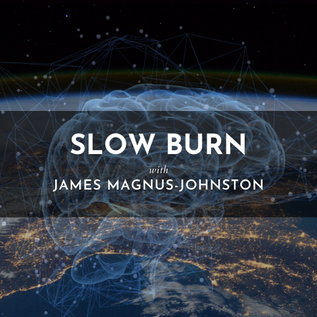|
We feel slow-burning ecological distress in our bodies. The complex emotions we carry about phenomena like climate change and the pandemic produce a collective nervous system experience, influencing our daily decisions, life choices, politics, and dreams. How we process these feelings will determine what kind of society we make together.
Learning to co-regulate our nervous systems by processing this slow burn together is important political work. To that end, each guest answers the question: what are you feeling as we approach tipping points? Hopeful? Fearful? Courageous? How does your vision of the next few decades inform your decisions today? How can we process complex emotions without inflaming social divisions? We'll explore how people and communities sense, name, and get ahead of slow-burning change. |
|
Britt Wray is a broadcaster and author researching the social and ethical entanglements of science and technology, with a focus on climate change and synthetic biology. Britt is writing a book about the mental health impacts of the climate crisis, with insights into processing COVID-19 and its effect on public life. |
Paul Rogers is Oxford Research Group's (ORG) Senior Fellow in International Security. He has worked in the field of international security, arms control and political violence for over 30 years. He argues that the world can't be the same again after COVID-19 and that COVID-19 is a "canary in the climate coal mine." |


